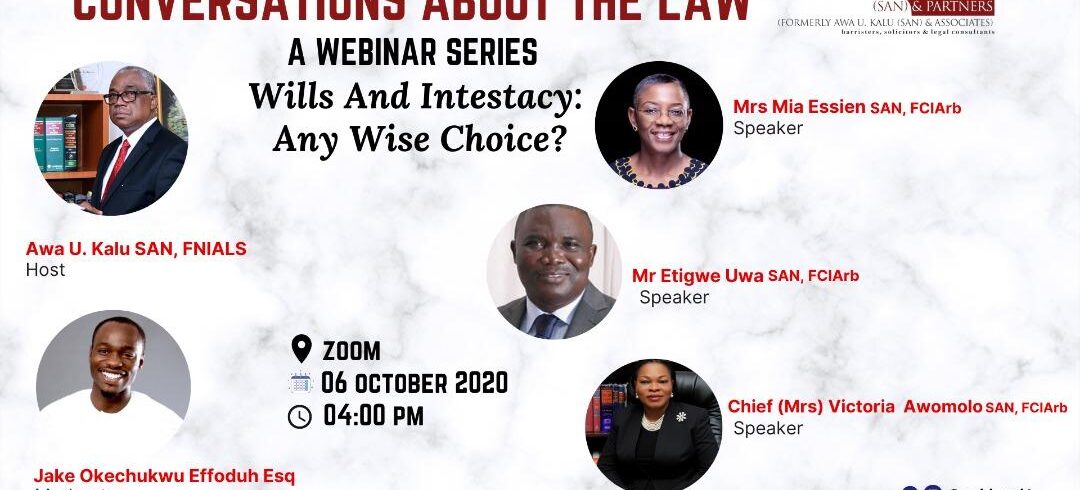A professor and Senior Advocate of Nigeria (SAN), Awa Kalu, in this interview with DOOSUUR IWAMBE, opines that immunity clause should not be extended to principal officers of the National Assembly.
The position of the constitution on immunity?
The constitution provides immunity from criminal proceedings, in favour of Chief Executives, that is to say, the Governor of a State, the Deputy Governor of a State, the Vice president of the federation and the President. That is constitutional immunity but in parliament, members of parliament such as Senators, members of the House of Representatives, House of Assembly members enjoy what they call parliamentary privilege; that is privilege from liability on account of whatever they say or do while in the legislature and that is the extent of their own immunity. Then for the Judiciary, you also have judicial immunity for whatever they do in the course of discharging their duties. They are not liable for whatever they say in their judgments or whatever they say in the conduct of judicial proceedings. So, for the three arms of government, each enjoy immunity of some sort but the only people who have immunity from criminal prosecution like I mentioned earlier are , the Governor, Deputy Governor, Vice President and the President. That is the position of the law.
Whether the immunity clause should be extended to principal officers of the National Assembly?
I don’t think that is the best idea, the immunity they have from statute. Immunity which is conferred by statute is enough to enable them discharge their duties; I do not think that immunity from criminal constitution should be extended to the principal officers of the National Assembly. That will be taking it too far.
Views on Saraki’s trial over assets declaration?
He’s been brought before the tribunal already and the arraignment has come to be so whatever it is should be decided by the tribunal.
On whether it is right for the charges to have been filed without an incumbent Attorney General of the Federation (AGF).
The office of the Attorney General is an office and not a human being that is what the Supreme Court said. The office of Attorney General is an office created by the constitution, so as long as crimes were committed, so also will crimes be prosecuted. There is no law that says if there is no physical Attorney General, then criminal prosecution must stop. I believe that is a misconception.
Would Saraki’s prosecution not be viewed as vendetta given the fact that the assets declaration was done about eight years ago?
Time does not run against the State, even if it takes two hundred years the state is always at liberty to vindicate offences that are committed against the State. That is the position of our law. There is no law that stipulates that if you commit an offence today, it must be prosecuted today. The only thing is that the accused this time, that is the Senate President belongs to the category of what they call politically exposed persons. So, because he holds high political office, there will always be suspicion about motives but in Criminal Law, motives are irrelevant. If the allegation is that you committed an offence, the accused persons must be given an opportunity to defend themselves that is the position of the law.
SOURCE : NATIONAL MIRROR




